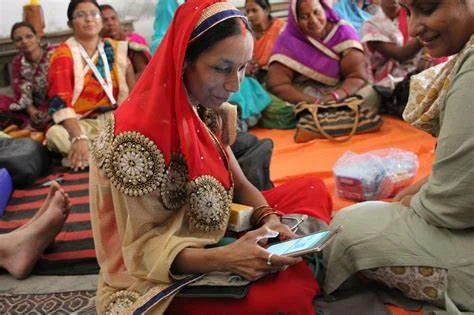Access to affordable, quality healthcare is a basic right for all, and the Healing Fields Foundation believes that women can serve as ideal change agents to make that vision a reality. The organisation, therefore, works in some of the poorest states in India to train and support women as health change agents in their own local communities.
HFF’s flagship programme is the development of “community health entrepreneurs”: women from marginalised and underprivileged areas are trained in basic first-aid and illness prevention, so that they can educate their communities about basic health, hygiene, sanitation and nutrition, and also act as first responders for minor health issues. This also allows women to earn an independent income as they gain leadership skills.
So far, HFF has trained 6,000 women as community health entrepreneurs in UP, Bihar, Telangana and Jharkhand, who in turn have reached out to 8.25 million people. Similarly, HFF has also trained 7,500 school health champions in Bihar and Telangana, who educate their peers on adolescent health and hygiene. Overall, the organisation has worked in 10 states across India.
The project supported by MFE:
Bringing healthcare access to forgotten villages
In line with HFF’s broader vision, this three-year project aims to train 100 new women as community health entrepreneurs (CHEs) in rural Bihar. HFF will train these women to be tech-enabled change agents within their communities, with the specific goal to improve health outcomes in non-communicable diseases and reproductive, maternal, newborn, child and adolescent health. The CHEs are to serve as a crucial bridge for last-mile connectivity between existing healthcare facilities and the community.
Collectively, HFF wants these 100 CHEs to reach out to 30,000 families – 1.65 lakh people – by the end of the project period. Through the work of the CHEs, the organisation wants families to improve their health seeking behaviour: this means at least 82,500 starting to consume nutritious food, 16,500 people accessing appropriate health facilities 60% of the target population getting timely treatment for non-communicable diseases and 16,500 of them receiving regular care for those diseases.
At the end of three years, HFF aims to screen and identify 40% of the targeted communities for diabetes, hypertension, and anaemia, and have them receive regular treatment and care. Reproductive healthcare services are to be managed in coordination with government health facilities.
The women serving as CHEs do not do their work simply as volunteers: HFF has committed to ensuring that all 100 of the new health entrepreneurs see an increase in their income by at least Rs 18,000 per year.

